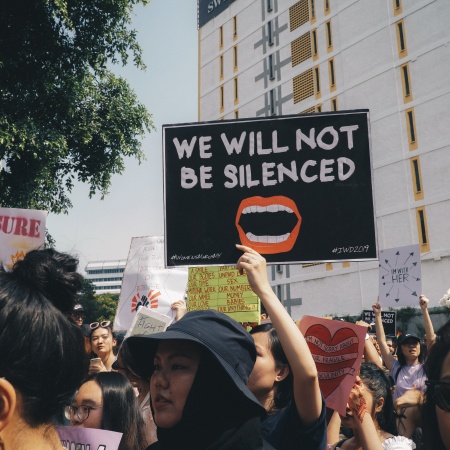Ajmer Urs
By Nilofar Suhrawardy, Muslim Media News Service (MMNS)
NEW DELHI/AJMER—Notwithstanding the Indo-Pak tension that has of late surfaced at the diplomatic level owing to New Delhi having voiced suspicion of Pakistan-based terrorist groups’ involvement in July 11-Mumbai blasts, there seems no laxity in warmth being displayed at the people-to-people level. Nothing could be a greater testimony to this reality than special arrangements made for about 500 Pakistani pilgrims here to attend the annual Urs at Ajmer of Sufi saint Khwaja Moinudeen Chishti from July 27th to August 2nd. A special train was arranged for Pakistani pilgrims, from Delhi to Ajmer, where the Central Girls Senior Secondary School was converted into a guesthouse for their stay until August 5th. Appreciating the “great love and affection†displayed for them by Indians, Sageer Ahmed Qadari, a judge from Rawalpindi, a leading Pakistani pilgrim, said: “We will pray for the peace, prosperity and [the] development of India and also for better relations between India and Pakistan.†Apart from offering a chadar at the mazar (shrine) on behalf of the Pakistani government, the Pakistani pilgrims also offered chadars individually.
Over the past centuries, Khwaja’s shrine has brought people of all faiths, including Hindus, Muslims, Sikhs and Christians, to offer their prayers. The Mughal Emperor Akbar is believed to have prayed here for the birth of his son.
Historically, Khwaja came from Persia in 1190 AD, at the age of 52 and established the Chishtiya order (silsila) here. The Chishtiya silsila lays stress on interpreting religion in terms of human services, renunciation of material goods, self-discipline and generosity. It is believed that he decided to come to India when in a dream Prophet (s) told him to do so. Here he settled in Ajmer, winning the love and reverence of people cutting across religious as well as social barriers. Having devoted his entire life to the service of mankind, the great Sufi saint became popularly known as Gharib Nawaz, or “protector of the poor.†In 1236, Khwaja entered his cell to pray in seclusion for six days, at the end of which he died. He was buried in the same cell, which is known as Dargah Sharif (the holy tomb). Since then, Urs is observed here every year for six days.
Devotees and regular visitors claim that prayers offered here never go unanswered, with the ill regaining health, paupers becoming rich, and so forth. This year, the 794th Urs, bringing together thousands, began on the night of July 27th with the sighting of the moon. Like in preceding years, the Urs has been marked by devotional music being rendered here in traditional Qawwali style. Devotees have also been given “tabarruk†or consecrated food, prepared in large, steaming cauldrons that were gifted by Emperor Akbar. Through the fair, the works of Khwaja and other Sufi saints have been recited, concluding with recitations of Qur`anic verses and special prayers.
The entire town of Ajmer Sharif bore an air of festivity throughout the Urs, decorated with buntings. Over the years, despite Indian politics being witness to rise of numerous parties representing different regions as well as communities, Ajmer Sharif is one place where even political differences have sunk into the background. Congress President and United Progressive Alliance chairperson Sonia Gandhi is known to offer a chadar at dargah every year. This year, while sending her chadar with a Congress delegation, she said: “I convey my warm greetings to devotees of all faiths who have gathered at Ajmer Sharif.†Among other politicians who sent their chadars were Vice-President Bhairon Singh Shekhawat and former prime minister Atal Behari Vajpayee.
Railway Minister Laloo Prasad Yadav personally visited the dargah and offered his chadar. After offering prayers and a special chadar, Laloo said: “I offered prayers for my family, friends and even for my enemies.†During his visit, he also reviewed arrangements of special trains for pilgrims from across the country. The special trains include one between Ajmer and Delhi via Jaipur for Pakistani pilgrims. Apart from making separate arrangements at Jaipur and Ajmer railway stations, as a precautionary measure, security had also been beefed up for Pakistani pilgrims, railway sources said. Separate trains had also been run for pilgrims from Gujarat, Madhya Pradesh, Uttar Pradesh and Haryana. Apart from a new train between Ajmer and Ranchi, special trains linking Ajmer with Bandra and with Kishanganj have also been run to help the pilgrims.
In addition, against the backdrop of Mumbai blasts, special attention was paid to strengthening security arrangements throughout the district. Twenty-three mobile magistrates had been deployed to deal with any eventuality.
It may be noted that in the opinion of several Islamic scholars, certain practices performed by pilgrims at the shrine are a deviation from basic Islamic principles. These include prostrating in front of the mazar, assuming that seven visits of Ajmer equates Hajj to Baitullah, the gate of paradise is opened here and so forth. Given that people from different religious communities and socio-economic backgrounds gather here, it would be impossible to expect all to adhere to any one rigid code. For instance, common Hindu pilgrims tend to prostrate here and even touch the feet of clerics in keeping with their own religious ethics. In any event, throngs of people come here to seek a means to the mercy and blessings of God.
8-33













2006
1,606 views
views
1
comments